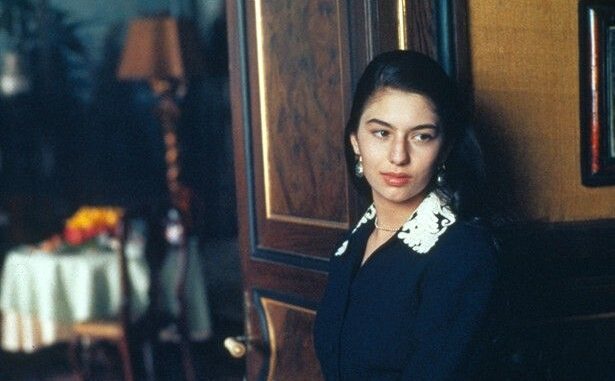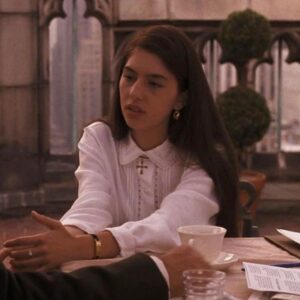
“I admire Priscilla because she’s the one who left Elvis”: Sofia Coppola on Priscilla

Sofia Coppola is one of those rare artists who do not intellectualize their creative process. In response to journalists’ remarks pointing out similarities between her films, she often expresses surprise: “Oh, I hadn’t noticed.” It is as if her cinematic works are of the unconscious. However, it is difficult to perceive unconscious destinies in the trajectories of her female characters, given that they are fed by the same rites of passage and obstacles inherent to female experiences. For example, in Priscilla, released this Wednesday, January 3 in French theaters, there is a scene of emancipation set to Dolly Parton’s ‘I Will Always Love You.’ On screen, a woman, Priscilla Beaulieu, leaving Graceland once and for all. The sound comes courtesy of another woman, Dolly Parton, the composer and performer of the hit ‘I Will Always Love You,’ who herself was a huge admirer of Elvis Presley. The story goes that the ‘king of rock’n’roll’ came close to covering ‘I Will Always Love You,’ to the delight of the country singer. However, the night before the famous recording, Elvis Presley’s manager, better known as the ‘Colonel,’ called Dolly Parton and demanded the publishing rights to the song. Parton refused – one of the most important choices of her career. Ultimately, it was Whitney Houston who covered ‘I Will Always Love You’ in 1992. The song became an instant hit, making Dolly Parton one of the wealthiest women in the United States. Did Sofia Coppola know about this historical entanglement when choosing Parton’s iconic song to close her latest film?
Priscilla Beaulieu, an archetype of Sofia Coppola’s cinema
It was 1985 when the book Elvis and Me was released in the United States, to general indifference. Written by Priscilla Beaulieu, with the help of Sandra Harmon, these memoirs recount the controversial relationship between the young woman and the musician – who were arguably the closest thing to a royal couple in America at the time. Priscilla and Elvis’ paths crossed when she was just 14, and he was 24. She moved to Graceland shortly thereafter, where she spent the rest of her teenage years before marrying the man she still considers, in 2023, to be the greatest love of her life.
Sofia Coppola recalls reading Elvis and Me a few years ago. “I was surprised to discover how easy it was to identify with her. Although this couple is very famous in American culture, I knew nothing about Priscilla’s story. I had no idea she lived at Graceland while still in high school, for example,” she explained during her visit to Paris. Yet, Priscilla has all the characteristics of a Coppola female lead. From a young teenager to an adult woman, she lived a reclusive existance in a gilded prison. Thus, her torments, like her ennui, are remarkably similar experiences to those of the Lisbon sisters in Virgin Suicides or those of Marie Antoinette, another royal figure. “There are connections between all of my films, that’s for sure. When I started thinking about Priscilla, I wondered if it wasn’t too similar to Marie Antoinette. But for me, it’s different: Priscilla wanted to go to Graceland. She always had a choice, and she was the one who chose to leave.”It’s not difficult to find elements of the point in common among Sofia Coppola’s muses in herself. The daughter of filmmaker Francis Ford Coppola, she spent her childhood on her father’s film sets scattered around the globe. Raised in a male-dominated world, she chose early on to portray only female experiences, sometimes confined to cultures that are not made for them. Priscilla is no exception to the rule, where the main character, played by the impressive Cailee Spaeny (awarded the Volpi Cup for Best Actress at the Venice Film Festival), finds herself caught between two quintessentially male cultures: with religion on one side and rock on the other. Perceived as a symbol of supreme purity by Elvis Presley, she is denied the right to go with him to Hollywood, where he takes advantage of his solitude to cheat on her openly. With slight variations, there are similarities between Coppola’s Priscilla and Scarlett Johansson’s character in Lost in Translation, who is relegated to her room at the Park Hyatt in Tokyo while her photographer husband disappears to work with numerous celebrities – a fictional relationship inspired by Sofia Coppola’s marriage to filmmaker Spike Jonze, which ended in 2003.
